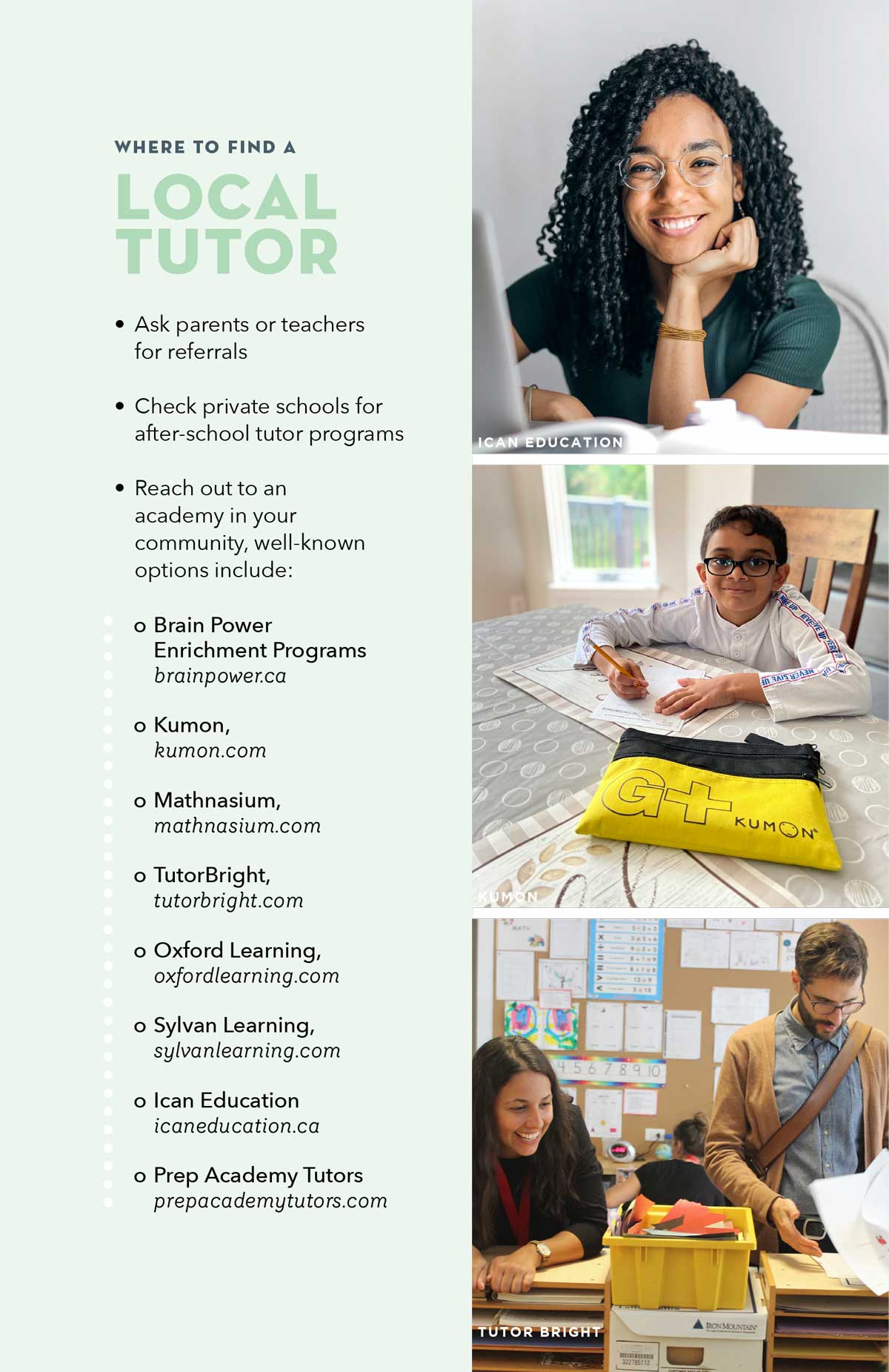The start of a new school year can be an exciting time, but also stress-inducing for students who struggle to keep up with classwork. Many students are still experiencing pandemic after-effects and have yet to catch up to their grade levels. A tutor can help ease their struggles and lift their grades, but finding the right match is important. Here’s what to consider when hiring a tutor.
Take a long-term approach
While most parents reach out to a tutor after seeing poor test marks, Suman Joseph, Centre Director of Sylvan Learning Burlington, says a student’s struggles often stem from issues deeper than academic misunderstanding. “A child’s struggle at school may stem from lack of self-confidence and school engagement, which significantly impacts their academic performance and perseverance.”
While parents’ main goal of hiring a tutor is often to improve academic grades, Joseph says tutoring is also about changing a child’s attitude toward learning. While a tutor can help improve subject matter understanding in the short term, developing a love of learning and resilience in kids will help them to face further challenges later on in their academic journeys.
Helen Trang, Centre Director of ICan Education for Burlington says a tutor is like a coach. “Great coaches boost a person’s confidence and inspire them to achieve higher standards,” she says.
So instead of asking your potential tutor how they will improve your child’s grades this year, ask how they will help your child’s confidence and prepare them for future academic success.

Tutoring isn’t one size fits all
Every child learns differently. A tutoring centre that customizes its strategies to the individual is more likely to experience success than a centre that blindly throws grade level work at a child. “The right tutoring centre or tutor should be able to change teaching strategies and/or the student’s program accordingly, so that the student is always learning at their comfort level and challenged at the right times,” says Joseph.
Vineet Khanna, owner and Centre Director of Mathnasium Burlington says it’s important to consider the child’s learning style. “For some students, one-on-one tutoring works better, while others require a more listening and hands-on approach,” says Khanna.
Most tutoring centres will assess the student’s learning level to create a custom program. Everyone (parents, student and tutor) should be on the same page about what the goals of the tutoring sessions are.
Time commitment
Helen Trang says the length of time a student sees a tutor will depend on the objectives. “If the objective is to foster a love for learning and to keep the child challenged, the child could continue every school year. If the child needs remedial support, it depends on where the child’s skills are today versus their goal,” says Trang.
The amount of time a child will spend with a tutor also depends on the level the child is currently at and what their goals are. Khanna advises parents not to impose a timeline or tell a child they have “x” number of sessions. “It’s important to not put pressure on the child to improve in a certain amount of time. Everybody learns differently and at their own pace.”
Budgeting for tutoring
Typically tutoring ranges from $50 to $65 per hour. How much to budget will depend on how much help a child needs. Joseph advises not to hold off to “save for tutoring” at a later date. “While tutoring may seem expensive at the start, it’s important for the child to get the right help at the right time,” says Joseph. Many tutoring centres have payment plans to help parents with budgeting.
by Lisa Evans






